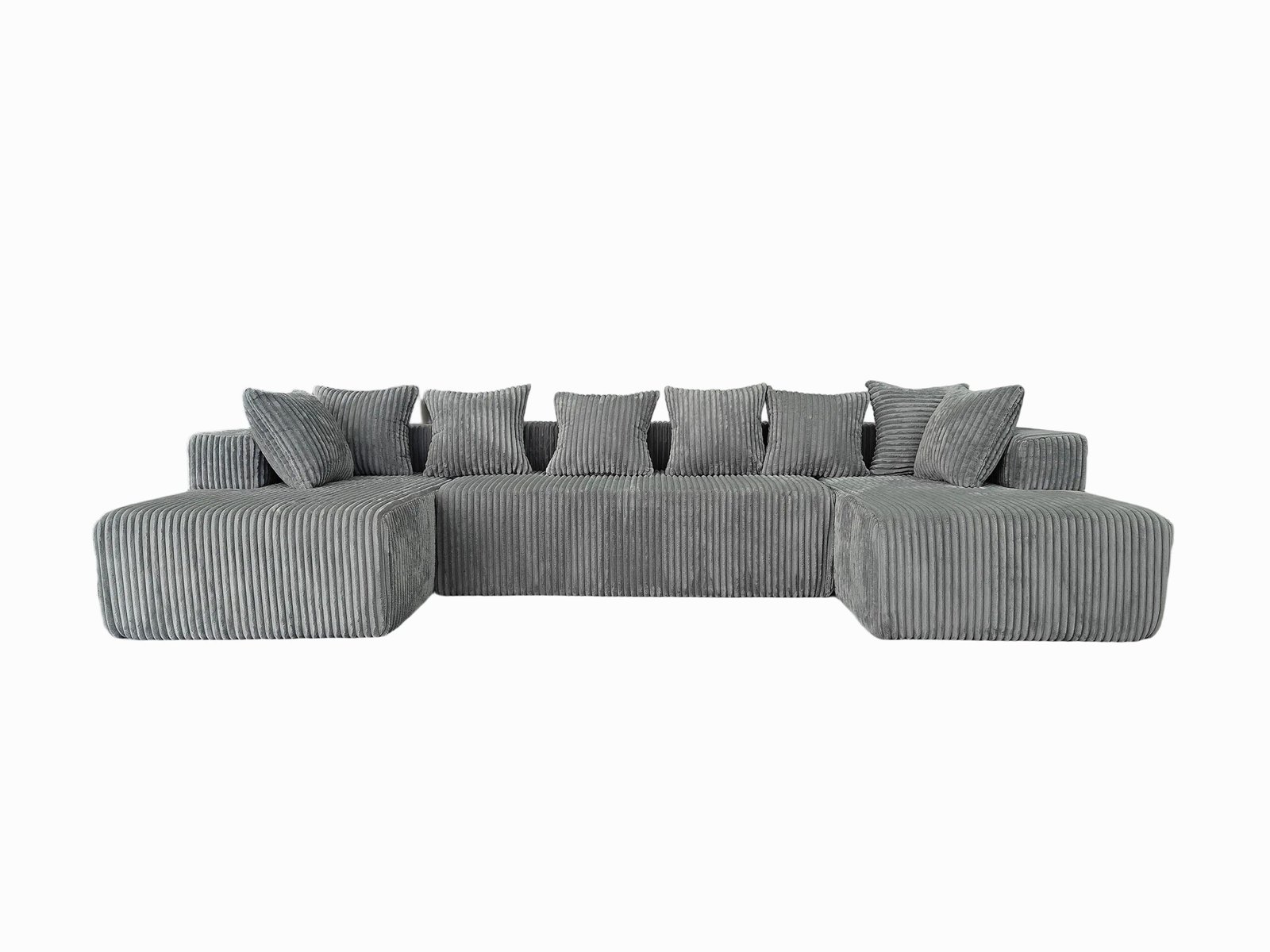
Thinking of adding compression sofas to your shop or online store? Before you list a price, you need to understand what the market already expects.
The retail price of a compression sofa typically ranges from $150 to $1,200, depending on design, brand, materials, and features.
Whether you're a new seller or scaling an existing brand, knowing how these prices form—and what customers are really paying for—can help you position your product correctly.
What are the main price tiers in the retail market?
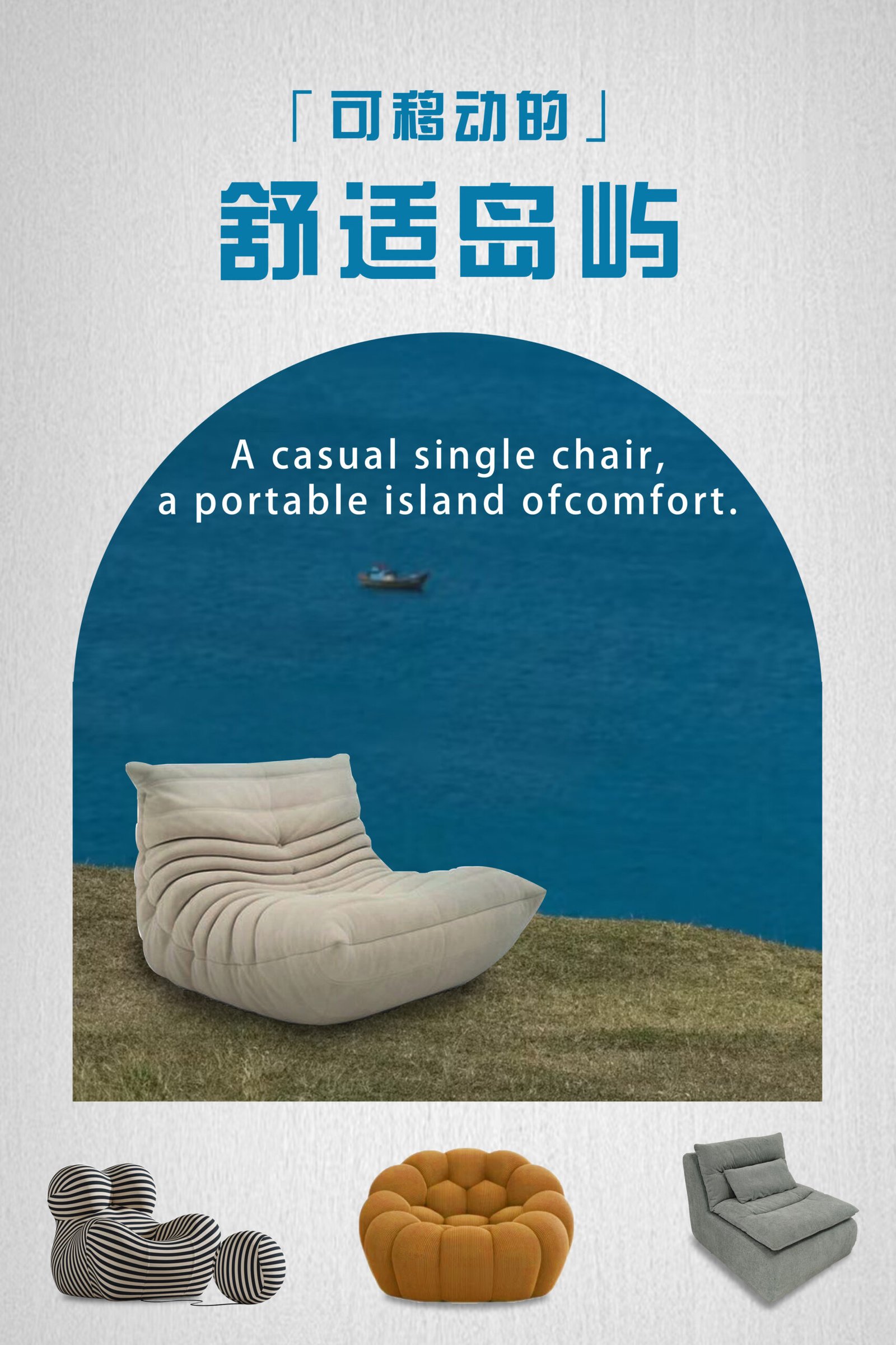
Not all compression sofas are created equal—and neither are their price tags. Let’s break down the common tiers.
Retail prices fall into three tiers: budget, mid-range, and premium. Each tier has distinct customer expectations and product features.
Tier Comparison Table:
| Tier | Price Range | Target Buyers | Common Features |
|---|---|---|---|
| Budget | $150–$300 | Students, renters | Basic foam, polyester, minimal design |
| Mid-Range | $300–$700 | Small families, couples | Better fabrics, adjustable backs, added storage |
| Premium | $700–$1,200+ | Homeowners, designers | Designer fabric, spring seats, modular systems |
From our sales experience at HSM, most B2C customers in North America and Europe prefer the $400–$600 sweet spot—a balance of value, comfort, and appearance.
How do materials and construction influence pricing?
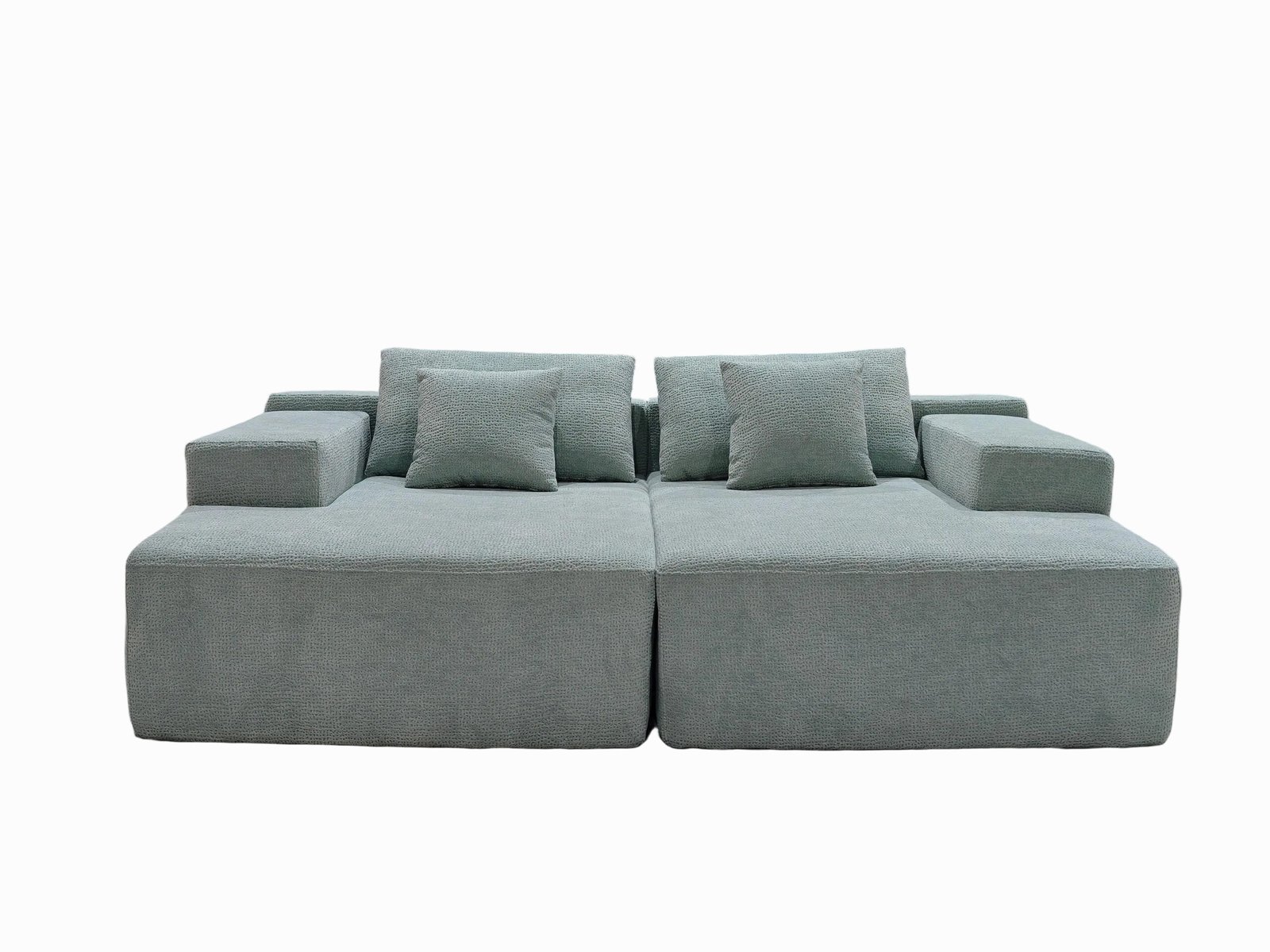
Two sofas might look the same in pictures. But sit on them once, and you'll feel the difference.
Higher-quality materials raise the price but also boost comfort, appearance, and longevity—key selling points in retail.
Material Impact on Price:
| Component | Budget Model | Mid-Range Model | Premium Model |
|---|---|---|---|
| Foam | 22D PU foam | 28D–30D high-resilience | 35D memory foam or hybrid |
| Frame | Pine or plastic | Engineered wood | Kiln-dried hardwood/steel |
| Fabric | Basic polyester | Linen-blend or microfiber | Velvet, leather, performance fabric |
| Mechanism | Manual fold | Gas-lift or click-clack | Hidden or silent retract system |
In retail, better materials don’t just justify a higher price—they reduce returns and increase word-of-mouth referrals.
How do brands and designs influence retail pricing?

Why can one brand charge $900 for a sofa that looks like a $300 model?
Strong brand identity, premium design, and customer trust can add hundreds to the retail value—even if core materials are similar.
Popular Brands and Retail Prices:
| Brand | Example Model | Approx. Price |
|---|---|---|
| IKEA | FÄRLÖV Compressed Sofa | $399 |
| Novogratz | Brittany Sofa Futon | $329–$459 |
| Serta | Palisades Convertible Sofa | $499–$699 |
| West Elm | Urban Sleeper Sofa | $999+ |
| Burrow | Nomad Sofa with Storage | $1,200+ |
As a seller, your pricing strategy should consider your positioning—not just your cost. Are you offering mass-market value, or boutique-level aesthetics?
How do extra features affect the price?
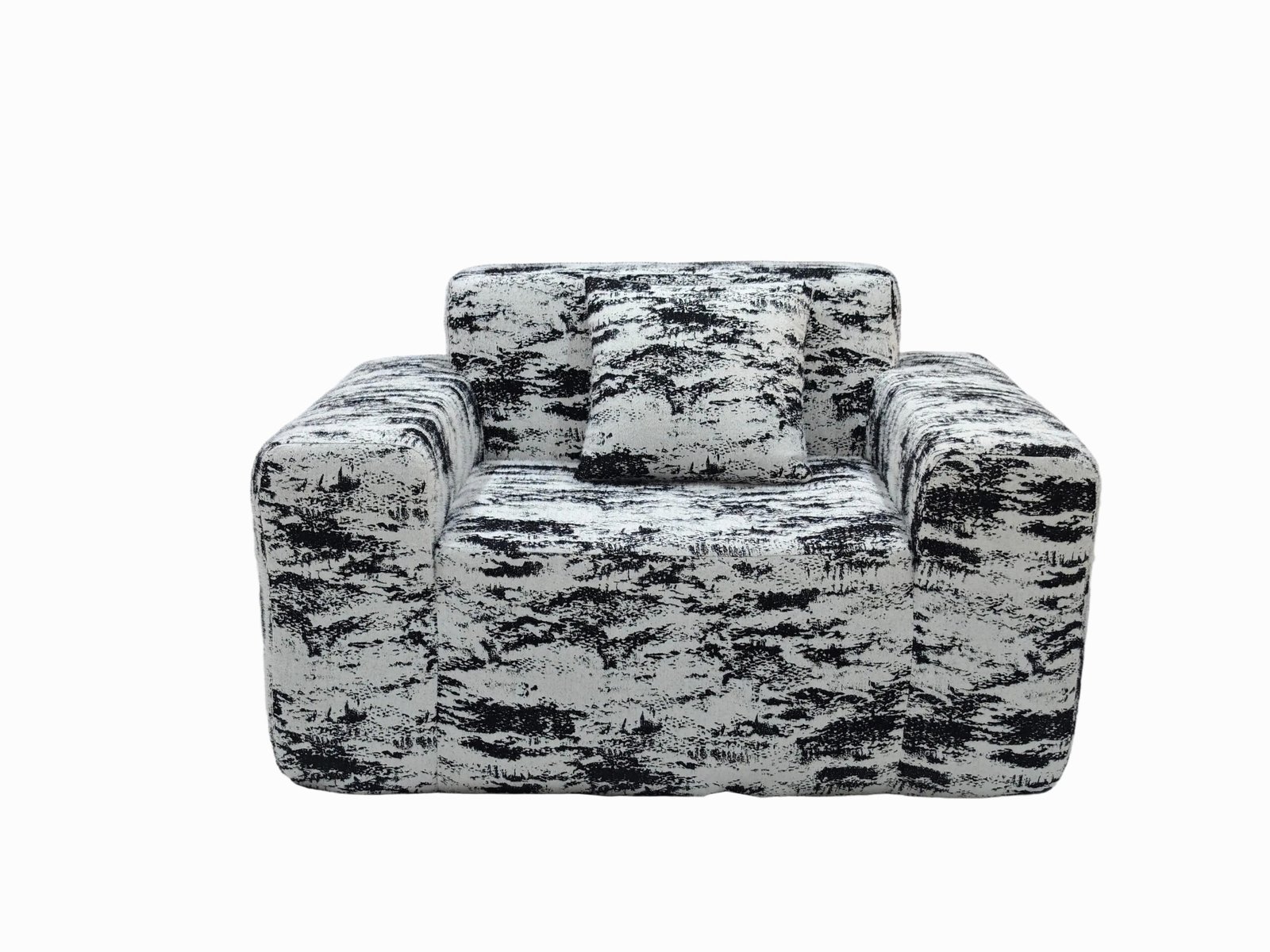
A sofa is no longer just a seat. It’s storage. It’s a bed. It’s a lounge. That multifunctionality? It adds value.
Features like built-in storage, modular parts, recliner options, and washable covers can push retail prices upward.
Feature-Based Price Adders:
| Feature | Typical Retail Markup |
|---|---|
| Pull-out bed or sleeper system | +$100–$300 |
| Built-in storage drawer | +$50–$150 |
| Adjustable armrests or backs | +$40–$100 |
| Waterproof or pet-proof fabric | +$30–$70 |
| Custom colors or textures | +$50–$200 |
Buyers are willing to pay more when features solve real problems—like lack of space, kids at home, or frequent guests.
How does the sales channel affect the final retail price?
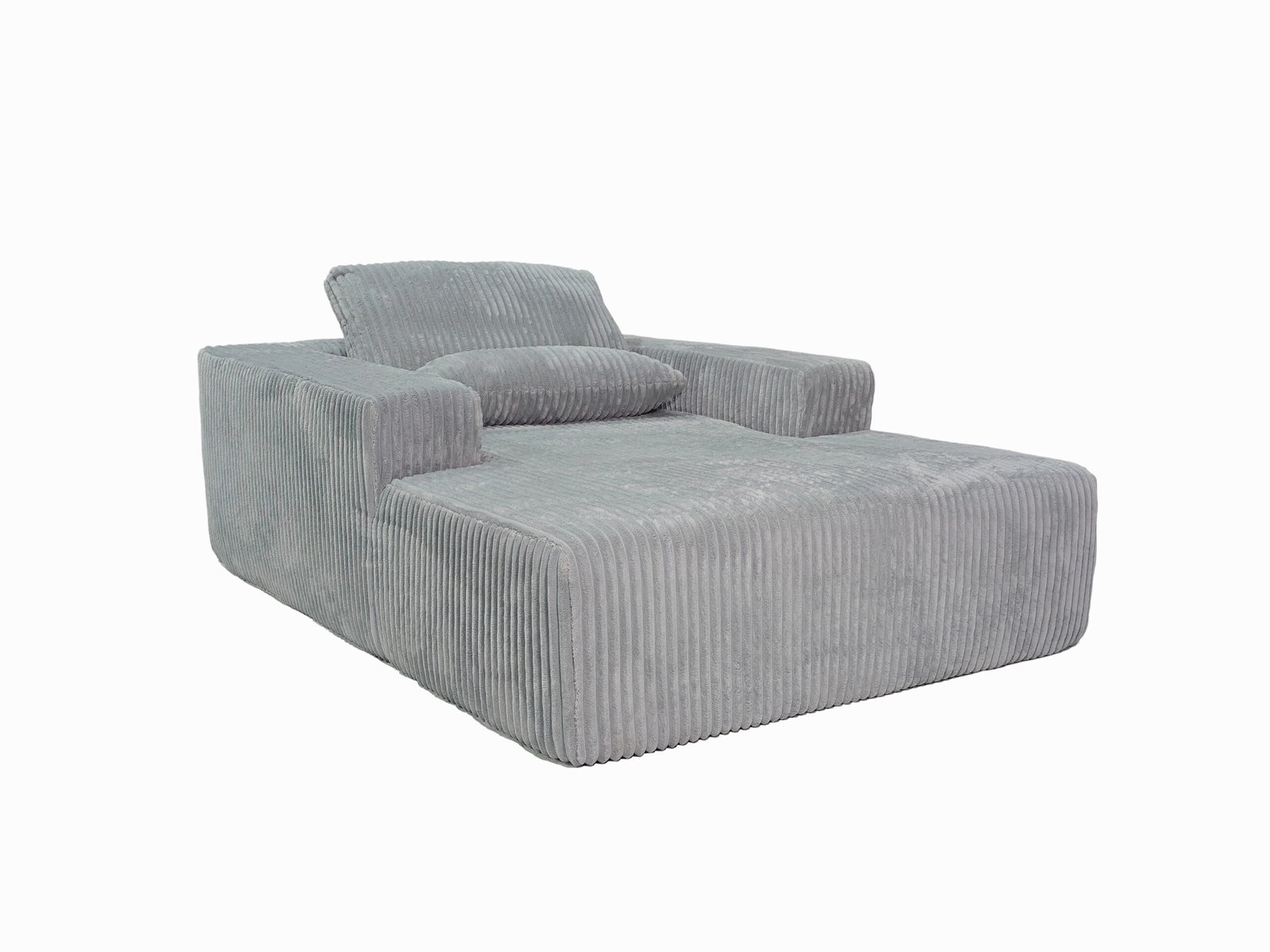
Where you sell it matters just as much as what you sell.
Retail markups vary by channel—online sellers may price lower due to fewer overheads, while showrooms add premium for physical experience.
Channel-Based Price Comparison:
| Channel | Typical Markup | Notes |
|---|---|---|
| Direct-to-Consumer | 2x–2.5x | Lower marketing cost, higher margin |
| Furniture Showroom | 2.5x–3.5x | Includes rent, display, staffing costs |
| E-commerce Site | 2x–3x | High volume, frequent discounts |
| Marketplace (eBay, Amazon) | 1.8x–2.2x | Lower control, high price competition |
At HSM, many of our B2B buyers choose online DTC sales to keep retail price under $600 while keeping 50%+ profit margin.
What’s the average retail price across different countries?
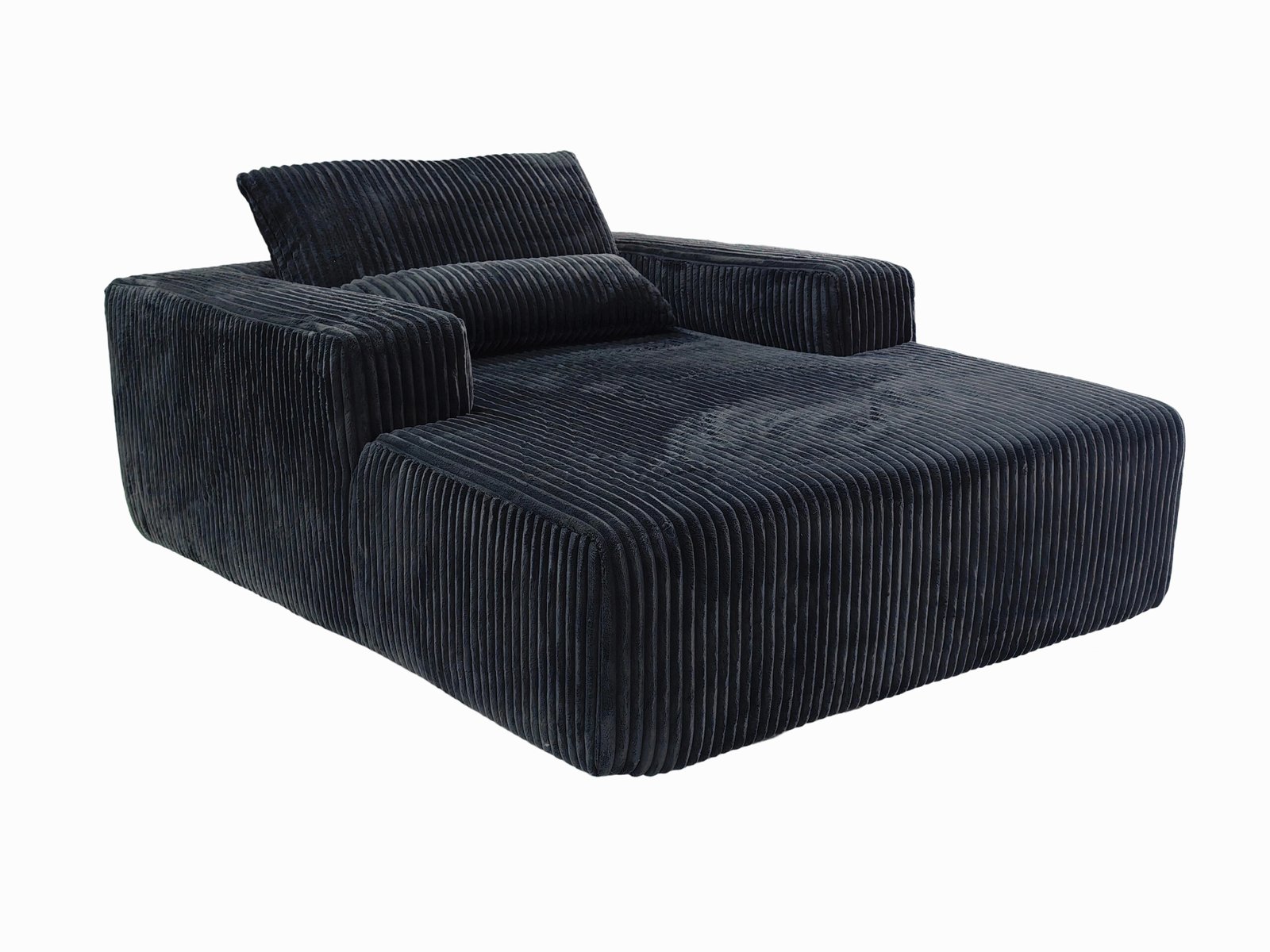
Your pricing must match the local income, tastes, and costs. One sofa, many markets.
Retail prices vary globally based on logistics, import taxes, and consumer purchasing power.
Country-Level Price Benchmarks:
| Country | Average Retail Price |
|---|---|
| United States | $400–$800 |
| Canada | $450–$900 |
| UK | £350–£700 |
| Germany | €400–€850 |
| Australia | AUD 700–1,200 |
| UAE | AED 1,500–3,000 |
Logistics and tariffs are part of this, but so is market psychology. For example, Australians prefer modular sofas and will pay more for that flexibility.
Conclusion
Retail prices for compression sofas vary widely—from $150 to over $1,200—based on design, material, brand, and market. The smartest sellers know where their product fits, and price for profit with value in mind.